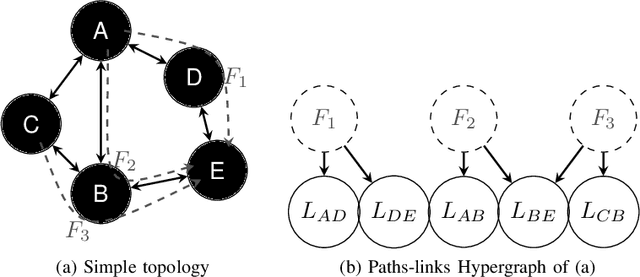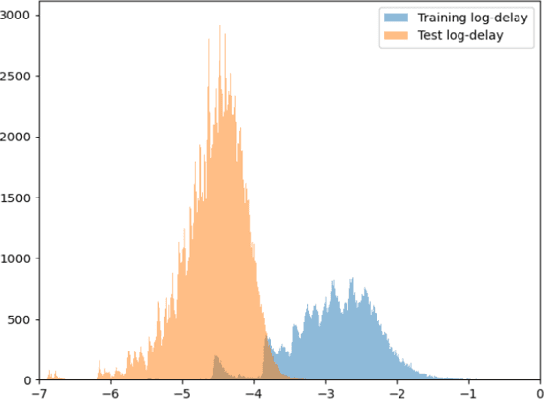Pierre Larrenie
LABISEN-KLAIM
Tracking mulitple targets with multiple radars using Distributed Auctions
Jul 31, 2023Abstract:Coordination of radars can be performed in various ways. To be more resilient radar networks can be coordinated in a decentralized way. In this paper, we introduce a highly resilient algorithm for radar coordination based on decentralized and collaborative bundle auctions. We first formalize our problem as a constrained optimization problem and apply a market-based algorithm to provide an approximate solution. Our approach allows to track simultaneously multiple targets, and to use up to two radars tracking the same target to improve accuracy. We show that our approach performs sensibly as well as a centralized approach relying on a MIP solver, and depending on the situations, may outperform it or be outperformed.
Low Complexity Approaches for End-to-End Latency Prediction
Jan 31, 2023



Abstract:Software Defined Networks have opened the door to statistical and AI-based techniques to improve efficiency of networking. Especially to ensure a certain Quality of Service (QoS) for specific applications by routing packets with awareness on content nature (VoIP, video, files, etc.) and its needs (latency, bandwidth, etc.) to use efficiently resources of a network. Predicting various Key Performance Indicators (KPIs) at any level may handle such problems while preserving network bandwidth. The question addressed in this work is the design of efficient and low-cost algorithms for KPI prediction, implementable at the local level. We focus on end-to-end latency prediction, for which we illustrate our approaches and results on a public dataset from the recent international challenge on GNN [1]. We propose several low complexity, locally implementable approaches, achieving significantly lower wall time both for training and inference, with marginally worse prediction accuracy compared to state-of-the-art global GNN solutions.
* arXiv admin note: substantial text overlap with arXiv:2301.13536
Low Complexity Adaptive Machine Learning Approaches for End-to-End Latency Prediction
Jan 31, 2023Abstract:Software Defined Networks have opened the door to statistical and AI-based techniques to improve efficiency of networking. Especially to ensure a certain Quality of Service (QoS) for specific applications by routing packets with awareness on content nature (VoIP, video, files, etc.) and its needs (latency, bandwidth, etc.) to use efficiently resources of a network. Monitoring and predicting various Key Performance Indicators (KPIs) at any level may handle such problems while preserving network bandwidth. The question addressed in this work is the design of efficient, low-cost adaptive algorithms for KPI estimation, monitoring and prediction. We focus on end-to-end latency prediction, for which we illustrate our approaches and results on data obtained from a public generator provided after the recent international challenge on GNN [12]. In this paper, we improve our previously proposed low-cost estimators [6] by adding the adaptive dimension, and show that the performances are minimally modified while gaining the ability to track varying networks.
 Add to Chrome
Add to Chrome Add to Firefox
Add to Firefox Add to Edge
Add to Edge